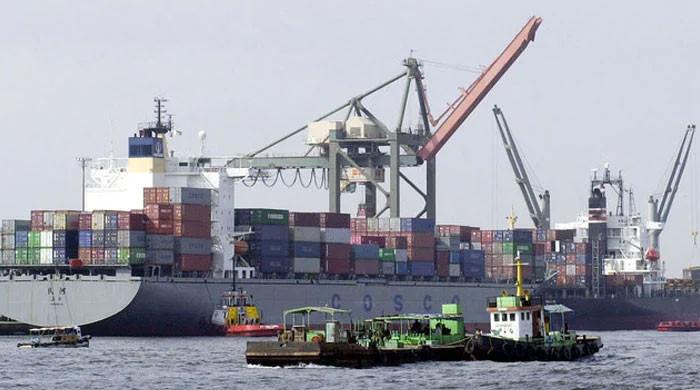PIDE Warns of Tariff Impact on Exports
- PIDE cautions about the devastating effects of tariffs on the export sector.
- Suggests diplomatic avenues to emphasize the mutual costs of tariffs.
- Proposes tariff reductions on US imports as a negotiating tactic.
ISLAMABAD: The Pakistan Institute of Development Economics (PIDE) has issued a warning regarding the potential impact of reciprocal tariffs imposed by the US, stating that these tariffs could cause a 20-25% decrease in Islamabad’s exports to Washington. This decline could result in an annual loss ranging from $1.1 billion to $1.4 billion.
PIDE suggests that the proposed reciprocal tariffs by the US could severely affect the country’s export sector, creating significant challenges for Pakistan’s trade.
According to a policy note released on April 13, 2025, the institute suggests that these tariffs may lead to macroeconomic instability, significant job losses, and a reduction in foreign exchange earnings.
The study, conducted by Dr. Muhammad Zeshan, Dr. Shujaat Farooq, and Dr. Usman Qadir, assesses the effects of a proposed 29% reciprocal tariff on Pakistani exports to the US. When combined with the existing 8.6% Most Favored Nation (MFN) tariff, the total duty could rise to 37.6%.
The study indicates that exports to the US would likely decrease by 20–25%, resulting in an annual loss of $1.1–1.4 billion, with the textile sector experiencing the most significant impact.
“Trade fosters connections that strengthen both economies involved. These proposed tariffs could damage those connections,” stated Dr. Nadeem Javaid, Vice Chancellor at PIDE. “At PIDE, we view this moment as an opportunity for course correction towards a more resilient and diversified export future for Pakistan.”
In fiscal year 2024, Pakistan’s exports to the United States were valued at $5.3 billion, making the US the country’s largest single-country export market. A significant portion of these exports consisted of textiles and apparel, which already face tariffs as high as 17%.
Should the proposed tariffs be implemented, Pakistan’s price competitiveness would be negatively affected, potentially allowing competitors such as India and Bangladesh to gain market share. The economic consequences would extend beyond just the textile industry.
Major exporters like Nishat Mills and Interloop might be compelled to decrease production, impacting more than 500,000 jobs. Non-textile exports, including leather, rice, surgical instruments, and sports goods, would also face increased vulnerability. Despite these risks, PIDE considers this situation as an opportunity for strategic transformation, urging Pakistan to take prompt and thoughtful action.
In the short term, PIDE advises Pakistan to engage in diplomatic efforts to emphasize the mutual costs of these tariffs and to preserve established trade relations. As an example, the US exported $181 million worth of cotton to Pakistan in 2024, a trade flow that is now at risk.
To facilitate negotiation, Pakistan might consider reducing tariffs on specific US imports, such as machinery, scrap metal, and petroleum. Additionally, Pakistani firms could be encouraged to increase their use of US-origin inputs like cotton and yarn to help sustain value chains and pursue tariff exemptions.
For the long term, PIDE stresses the importance of diversifying both export products and markets. Emerging markets in the EU, China, ASEAN countries, Africa, and the Middle East offer potential growth in sectors such as IT, halal food, processed foods, and sports goods.
The report also suggests measures to decrease energy and logistics costs, streamline regulations, and promote innovation and technology adoption. Furthermore, a comprehensive US trade strategy is deemed necessary, focusing on creating synergies in technology, agriculture, energy, and value-added manufacturing.
Internationally, PIDE points out that the proposed US tariffs surpass the WTO’s bound tariff ceiling of 3.4%, potentially violating multilateral trade rules. While pursuing legal recourse through the WTO remains an option, Pakistan’s limited fiscal resources may pose challenges to such efforts.
Moreover, the tariffs disregard the interconnected nature of global trade.
The US-Pakistan textile loop exemplifies this, with American cotton supplying Pakistani mills, which then export finished garments back to the US, indicating that disrupting this value chain would not benefit either country.
Despite the challenges ahead, this situation presents an opportunity for Pakistan to strengthen its export framework.
Through strategic policy reforms, timely diplomacy, and diversification efforts, Pakistan can not only withstand this external shock but also emerge as a more competitive and resilient participant in the global economy.



Comments (0)
No comments yet. Be the first to comment!
Leave a Comment